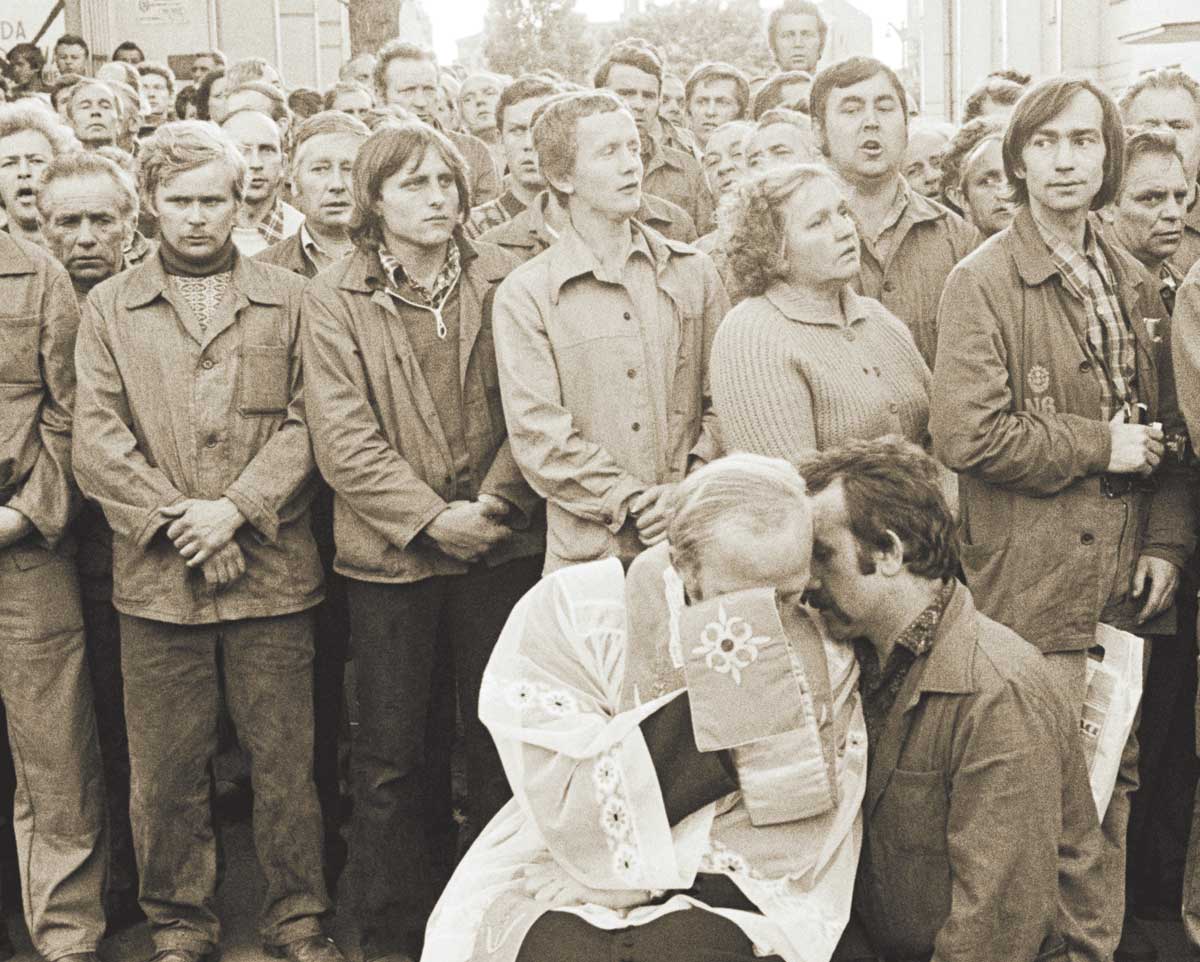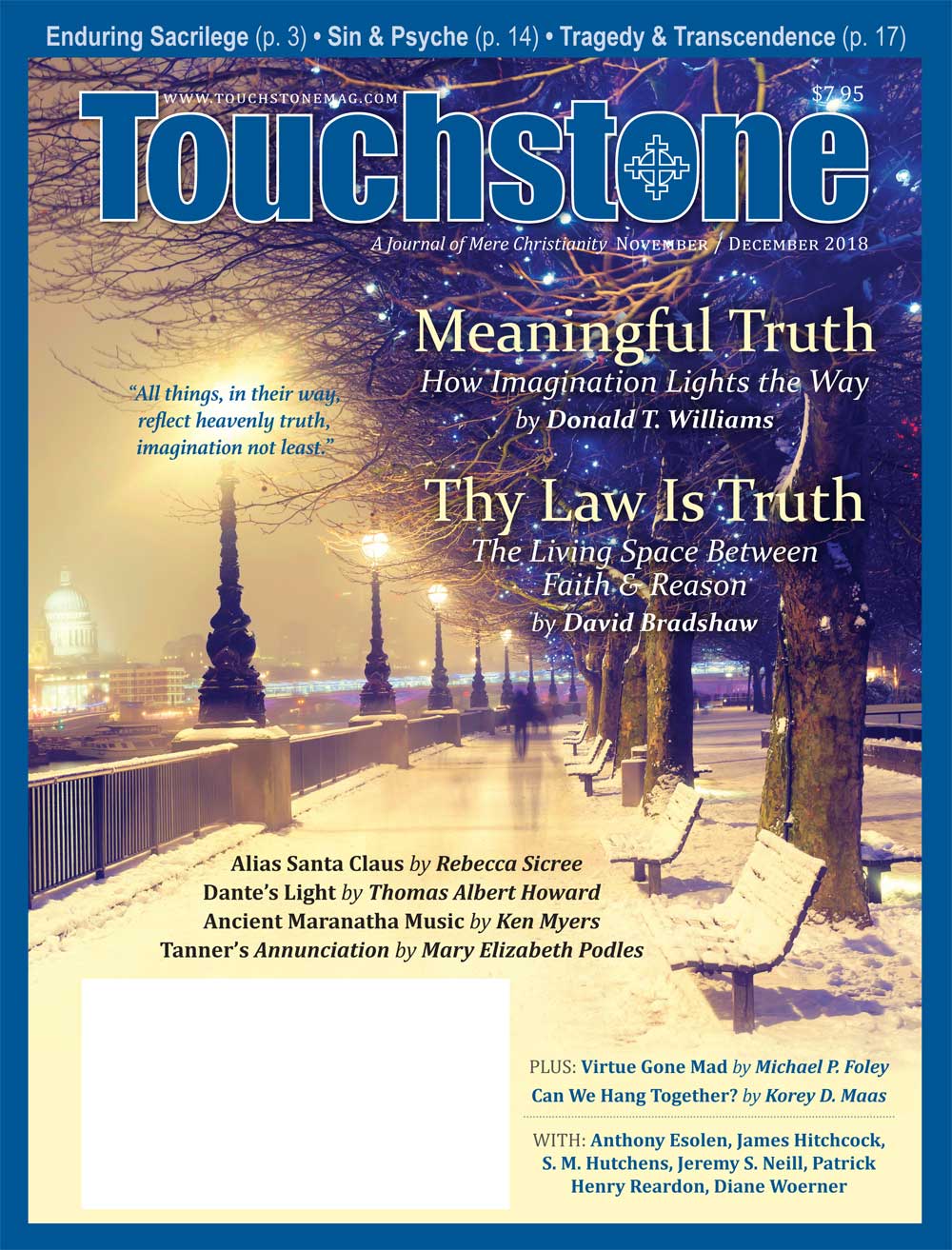View
Of Single Importance
Diane Woerner on the Church's Response to the Anti-marriage Tide
Until recent times, nearly every person who reached adulthood got married. But today roughly half of our adult population is unmarried. Two obvious factors contribute to this reality: the frequency of divorce and the normalization of cohabitation. But entwined with these trends is another strand that may not be as apparent—the significant delaying of marriage for those who still intend to marry, resulting in a sizeable demographic of "young singles." This presents the church with a unique ministry challenge and raises some important questions, including, how did we get here, how should we interpret where we are, and how do we best engage this reality?
Why So Many?
As with many of our modern social dilemmas, the roots can be traced to the radical cultural inversion of the 1960s and 1970s. Today's feminism began its unstoppable ascent in a restless female population that, thanks in part to the influx of household conveniences and the memory of working outside the home during the war days, found themselves increasingly bored with homemaking and childrearing. Betty Friedan then ignited this smoldering discontent with the suggestion that men lived the good life and were intentionally depriving women of that which would actually fulfill them.
Fast forward to today, when young women are given no hint that homemaking is even an option for them—at least not until they have some means whereby they can financially support themselves. They may work simply for a paycheck, or they may gain an impressive identity as a career woman, but in either case, modern womanhood has unknowingly removed a primary impetus for marriage: the need for a husband to be the provider.
But of course this is just one piece of a multi-faceted phenomenon. The following list suggests some of the other confluent causes.
• The harsh realities of so many failed marriages leave minimal modeling or optimism for marital success.
• Modern philosophies of childrearing make parenting more difficult.
• The lack of training for home-based skills such as cooking or making repairs increases the need for higher incomes to pay for these services.
• Similarly, the rising costs of education, housing, taxation, insurance, health care, and more can trap people into a job-centered existence.
• The pervasive priority of entertainment results in a perpetual "play" mentality, particularly in men.
• And the big factor: a tsunami of sexual perversity and addiction is generated and perpetuated by the ready availability of pornography in all its diabolic manifestations.
Interpreting the Phenomenon
In recent years much has been written and preached regarding singlehood—how it can be viewed as a spiritual asset, how the church should become family to those who are single, how singles should stand strong against sexual temptation, and so forth. All these things are true and helpful. Nevertheless, there are some major gaps in most people's perceptions which, when properly understood, could give the church a stronger position in its ministry to young singles.
1. Few older adults realize the extent to which today's singles have not chosen their lot.
There is an unconscious tendency in those for whom marriage came fairly easily to assume that singles occupy an inferior class of their own making. But an honest look at the contributing factors, such as those mentioned above, should make it clear that the environment today's young people live in came in large part from the missteps of prior generations. For this reason, simply pressuring them now to marry is to misunderstand the problem.
2. The church's choice to elevate and extol singleness as God's good gift is a kind-hearted but wrong message.
There is a fine line to be drawn between emphasizing the single person's value, both before God and within the community, and assuring such persons that their singleness is as much God's blessing and design as is marriage.
There are two reasons this distinction should be made. First, it is arguable that such elevation of singlehood has little or no biblical support (which will be addressed below). But the other reason is that singles—who hear this all the time from the church—are not really comforted by it. For one thing, most of the people who promote this idea are themselves married, and, if they were honest, could not say their own ministries would be more effective if they had not married. More to the point, singles instinctively know they were created to be married. God said so in Genesis 2, and Jesus reaffirmed it in Matthew 19.
3. The singles problem does not apply uniformly to men and women.
In a very real sense, the singles situation is the fallout of the pervasive masculinizing of women and feminizing of men. It is also increasingly evident that men have lost their bearings and are being sucked into perpetual adolescence, while women find themselves inwardly driven to take their place—trends which, we should note, are mutually reinforcing.
From at least one perspective, however, the ones who are in the most pain in today's world of singles are the women. If it were possible to insulate them from all the messages our culture inundates them with regarding what they should be seeking, every woman has an inner sense that her feminine identity is centered on relationships, and most particularly on a relationship with a man and with her children.
While men, too, are able to confirm an important part of their masculinity in a relationship with a woman—being man enough to win her and to care for her—they have other arenas in which they can validate their manhood: through competitions and heroics and professional achievements. Much as women want to think these arenas will work for them as well, they really don't, not in the long run. Although single women do find other ways to validate their femininity, these are never as satisfying as those God originally designed.
Thus, when Christian leaders tell singles to embrace and rejoice in their singleness, that message is heard differently by men and women. For women, it can be a reinforcement of their despair. For men, it often reinforces their choice to remain single, "at least for now."
4. The Bible does not advocate singleness other than for a few special callings or in certain critical contexts.
Normally, those who attempt to elevate singleness as God's deliberate design make reference to biblical figures who were single, most often Jesus, Paul, and John the Baptist. Yet there should be no question that the callings of these men were extremely unique. Few singles in our day have anything like similar callings.
The primary text used in support of singleness as God's good gift is 1 Corinthians 7. Yet Paul's focus in this chapter is not really on marriage, but rather on a person's remaining as he is (v. 24). His point is clear in verse 28: "If you do get married, you have not sinned. . . . But such people will have trouble in this life, and I am trying to spare you." He goes on to say, "The time is limited, so from now on those who have wives should be as though they had none. . . . For this world in its current form is passing away."
There is no reason to believe Paul is reversing God's original observation, "It is not good that man should be alone," or Jesus' statement, "Have you not read that he who made them at the beginning 'made them male and female,' and said, 'For this reason a man shall leave his father and mother and be joined to his wife'?" It is because Paul was so clearly aware of "the present distress" (v. 26) that he viewed marriage as peripheral to both the life situation of believers and the advance of the gospel.
Like Paul, our world is also telling us that marriage is not the most important thing—but for completely different reasons. We're being assured that our pleasure and our security and our convenience are more important. As young people look around, they see that marriage often doesn't offer these, at least not with any guarantees.
And it's true. Most marriage and parenting experiences today are far from ideal. The "grass is not greener" message can be valid simply because there is no perfectly green grass anywhere in our fallen world. But to make the conversation all about the pragmatic benefits in life can miss the point of what God designed for human relationships. Once we lower the bar and dismiss the higher goal because it seems too hard to reach, we will only drift farther and farther from anything "green" at all.
How to Minister
So how should the church respond to the singles phenomenon? We should first acknowledge that today's young people (and even many older people) are the target of a massive diabolical campaign to destroy the foundation of human society: healthy families. We must not increase that damage by being judgmental or by compromising truth.
For those of us who are married, there needs to be a greater desire to care about singles of all ages, intentionally drawing them into our life activities. Singles aren't a different, much less an inferior, species. They have stories that are complicated. They have been given a lot of misinformation that is proving to be significantly costly. They aren't just doing things wrong that we did right. It's not that simple.
With regard to single women, there needs to be compassion. Many of them deeply long to be married. The pain that comes from desiring something God himself put in their hearts—and then not being able to have it—is actually a universal pain. Singleness—like being barren or having abusive parents or suffering a physical disability or losing one's home to fire—brings the challenge of believing God to be loving when he allows us to be deprived of that which he says is good. As the church discovers how to give comfort in loss, it will better understand how to minister to single women.
For single men, the need is different. Manhood is under attack in so many ways it's hard to identify them all. One common approach to men who fall short in their manly assignments is simply to scold them. Can we say that doesn't seem to work? Rather than continually rehearsing their points of failure, there's a place where young men especially need to be called into places of hard work and responsibility through challenges and leadership from older men. But all men need to be given appropriate honor when they display those qualities that mark true manhood. These processes used to be in place in our culture—through scouting, through the military, and through the prestige of masculine careers.
But now that these contexts are becoming increasingly feminized, such arenas of masculine affirmation have been largely replaced by things that are essentially empty of true significance. Sports might seem significant, but they really aren't—not as Paul understood significance. How much less all the "virtual" achievements from gaming and such, which occupy most masculine energies and passions long before boys even near adulthood. We need to remember that sports were originally designed to prepare men for real warfare, and other entertainments were simply brief pauses for refreshment, so men could return with renewed energy to their real-world jobs.
All of this has conspired to bring manhood to a place of great emptiness, while the women are gradually taking over most of the real-world load bearing. Thus, when young women look for young men who are willing to assume the real-world role of husband, the latter simply aren't to be found.
Sadly, there are no quick fixes. But I strongly believe the church needs to deliberately push back against the anti-marriage tide of our day. I have talked with young women who are surprised that what I describe is even an option for them—but time and again they tell me, "It's what I really want." For that reason alone, we ought to be promoting God's design, not to bring guilt or discouragement, but to give young people permission to believe what they know to be true.
Diane Woerner is a homemaker who lives near Centerville, Tennessee. Her website is www.bereansnotepad.com.
subscription options
Order
Print/Online Subscription

Get six issues (one year) of Touchstone PLUS full online access including pdf downloads for only $39.95. That's only $3.34 per month!
Order
Online Only
Subscription

Get a one-year full-access subscription to the Touchstone online archives for only $19.95. That's only $1.66 per month!
bulk subscriptions
Order Touchstone subscriptions in bulk and save $10 per sub! Each subscription includes 6 issues of Touchstone plus full online access to touchstonemag.com—including archives, videos, and pdf downloads of recent issues for only $29.95 each! Great for churches or study groups.
Transactions will be processed on a secure server.
more on sex from the online archives

27.6—Nov/Dec 2014
Tales of Forbidden Stereotypes
Real-Life Men & Women & the Tragic Loss of Human Comedy by Anthony Esolen
more from the online archives

19.10—December 2006
Workers of Another World United
A Personal Commemoration of Poland’s Solidarity 25 Years Later by John Harmon McElroy
calling all readers
Please Donate
"There are magazines worth reading but few worth saving . . . Touchstone is just such a magazine."
—Alice von Hildebrand
"Here we do not concede one square millimeter of territory to falsehood, folly, contemporary sentimentality, or fashion. We speak the truth, and let God be our judge. . . . Touchstone is the one committedly Christian conservative journal."
—Anthony Esolen, Touchstone senior editor











